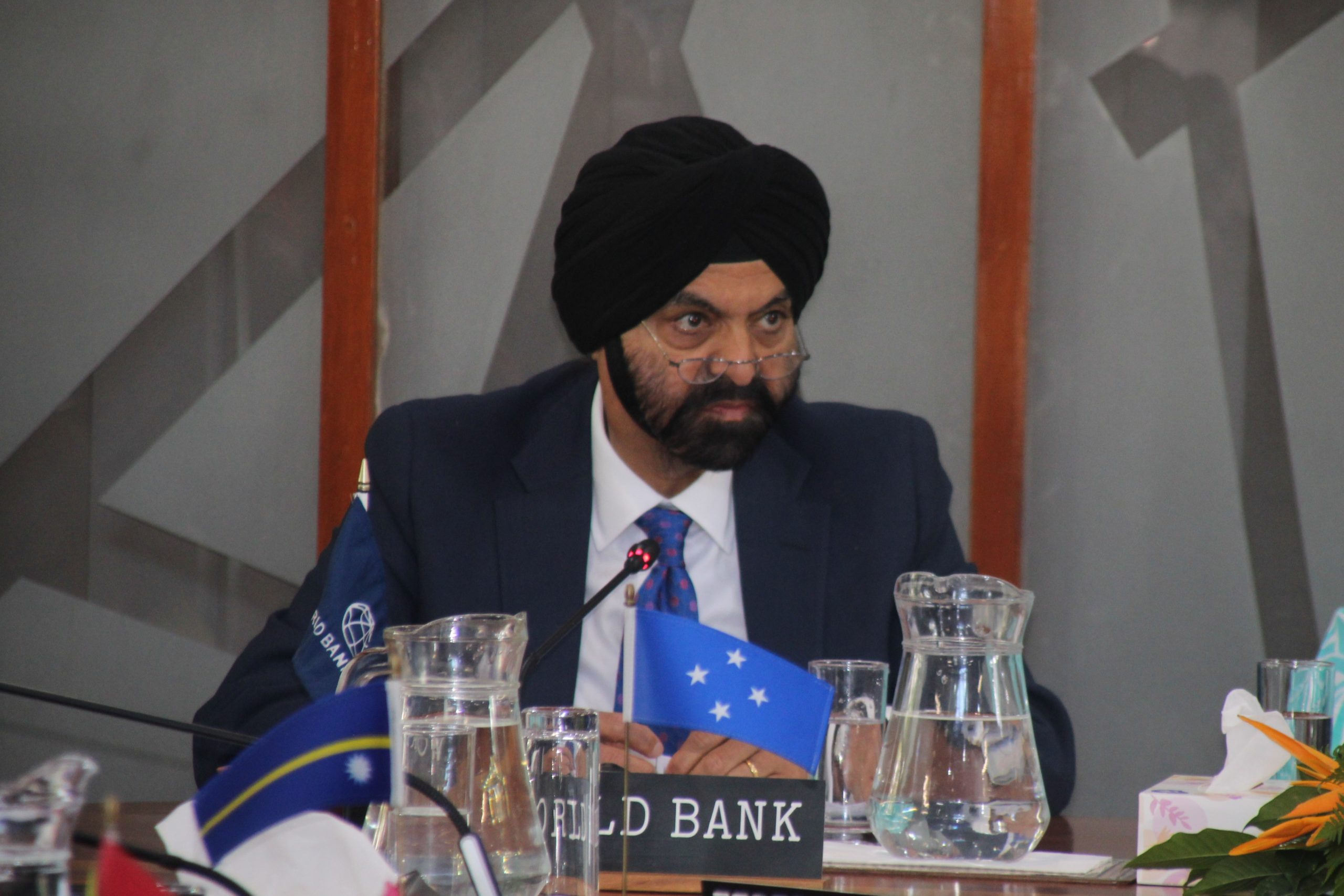World Bank Group President Ajay Banga Tuesday laid out an ambitious vision for the institution, calling for fast and bold reforms to address intertwined global challenges like climate change, inequality, and economic fragility.
“Our mission is clear: to create a world free of poverty on a livable planet,” Banga said at the Lowy Institute in Sydney.
He emphasised that the World Bank must evolve to meet the demands of today’s complex landscape.
“We need to be faster, simpler, and more impact-oriented,” he said.
Banga’s remarks came after a year-long global tour, including recent visits to the Pacific Islands, which he described as a region on the frontlines of the crises the World Bank is tackling.
“Last week’s visit to the Pacific Islands—the first of many I’m sure—is critical to that effort. It is a region on the frontlines of many of the crises we are working to address. A region that may seem remote – but with experiences and struggles and ambitions – that are close to home for many.
“At the World Bank, we see these global challenges as intertwined – climate change, inequality, and fragility. We understand that the challenges of the Pacific Islands are a microcosm of forces playing out around the globe.
“Between my first trip to Peru on to this final visit to Tuvalu, I have visited 27 countries on six continents, and met with leaders of developed and developing economies alike. I was able to speak with civil society stakeholders, business leaders, experts in climate, development, and finance. Most importantly I had the privilege to see first-hand how people are benefiting from the work of the World Bank.
“Each stop has reaffirmed several truths.
“This tour was about much more than just visiting countries; it was about listening, learning, and reimagining how the World Bank can serve a world in profound need of change.
“Our mission was to write a new playbook for the World Bank Group—one that is fit for today’s challenges and the uncertainties of tomorrow,” Banga stressed.
Banga outlined several reforms aimed at making the World Bank more effective, including streamlining the project-approval process and integrating operations across 20 pilot countries to reduce bureaucracy.
“We’ve already shortened our project-approval process by three months and are working to cut it down even further,” he said.
The World Bank is also pushing to expand its lending capacity, with Banga announcing that the institution has found new ways to stretch its balance sheet to unlock US$120 billion in additional lending over the next decade.
“These reforms are not just about numbers; they’re about delivering real impact,” Banga stressed.
He highlighted the World Bank’s commitment to climate action, with a pledge to direct 45 percent of its funds toward climate initiatives by 2025, focusing heavily on adaptation in regions like the Pacific.
“In the Pacific, 97 percent of our climate financing goes to adaptation,” Banga said, pointing to the pressing need for resilience in the face of rising sea levels and extreme weather events.
Banga also highlighted the importance of partnerships in achieving development goals, calling on governments, philanthropies, and the private sector to collaborate.
“To close the financing and jobs gap, we need the private sector’s ingenuity, speed, and resources to generate bankable projects,” he said, noting the World Bank’s efforts to engage top CEOs in finding solutions to boost private investment in renewable energy.
He called on donors to support the replenishment of the International Development Association (IDA), which he described as a critical lifeline for developing countries.
“The magic of IDA is not just the lifeline it offers, but its unique capacity to multiply every donor dollar four times. It’s the best deal in development,” Banga stated.
Banga also emphasised that the World Bank’s ability to drive change relies on the ambition and generosity of its shareholders.
“The progress we aspire to achieve demands more.
“For us, this is just the beginning. We have additional reforms underway and greater ambition on the horizon,” he said.














